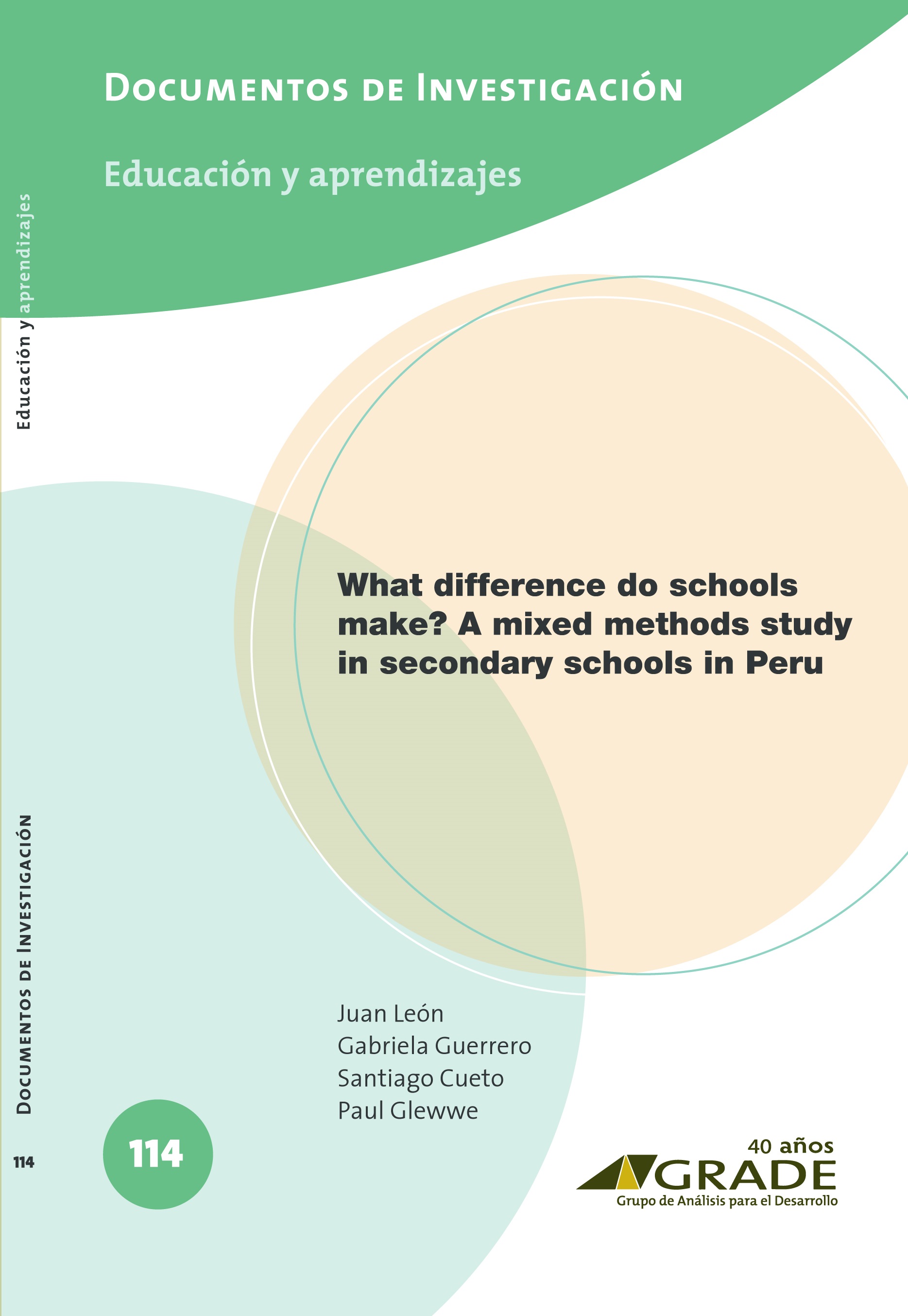What difference do schools make? A mixed methods study in secondary schools in Peru

View/
Date
2021Author
León, Juan
Guerrero, Gabriela
Cueto, Santiago
Glewwe, Paul
Metadata
Show full item recordAbstract
This study contributes to filling the existing gap in the scarce literature on school effectiveness in secondary education in Peru by addressing the following questions: i) which educational processes within schools are most influential in math and reading comprehension? and in the case of the most effective schools, ii) what is the importance that principals, teachers, and students place on school processes variables in explaining educational outcomes? We use a mixed-method design that follows a sequential explanatory design. First, using the Young Lives secondary school survey in Peru (2017), we estimate a random effects model to explore the effect of teacher and school level variables on math and reading comprehension. Then, we conduct a qualitative case study in two schools identified as high-performance schools (HPS) by the survey, with the aim of explaining the role of school processes variables on educational results. The multivariate analysis shows that among teacher and classroom level variables, feedback provided to students and the satisfaction with his/her relationship with the educational actors were statistically significant. Among school level variables, school principal´s experience, average level of school wealth index, students per classroom and the infrastructure were statistically significant. The analysis of in-depth interviews and focus groups with vice-principals, teachers, and students from the two HPS shows that these two effective schools promote higher student achievement through different policies. At the school level, they have monitoring and constant teacher training policies to improve the quality of teaching. They also have student discipline and teacher collaboration policies to promote a conducive school learning environment. Correspondingly, at the classroom level, these schools are characterized by the quality of their teaching strategies regarding peer-mentoring, feedback and use of materials, and by their positive classroom learning environments based on teachers’ monitoring of students’ progress and teacher-student relations of care and trust. Our results point out the importance of the pedagogical work of the different educational actors inside the school. Educational programs carried out by local and national governments should pay more attention to the dynamics within the school to mitigate the educational inequalities, equalizing upwards the opportunities for children in impoverished public schools. Este estudio contribuye a la escasa literatura sobre la efectividad escolar en la educación secundaria en Perú al abordar las siguientes preguntas: i) ¿Qué procesos educativos dentro de las escuelas son más influyentes en matemáticas y comprensión lectora?, y en el caso de las escuelas más efectivas, ii) ¿cuál es la importancia que los directores, maestros y estudiantes le otorgan a las variables de los procesos escolares para explicar los resultados educativos? Se utiliza un diseño de método mixto que sigue un diseño explicativo secuencial. Los resultados señalan la relevancia de las variables del proceso escolar a nivel escolar. Por lo tanto, los programas educativos que llevan a cabo los gobiernos locales y nacionales deben prestar más atención a las dinámicas dentro de la escuela para mitigar las desigualdades educativas, igualando al alza las oportunidades para los niños de las escuelas públicas empobrecidas.



